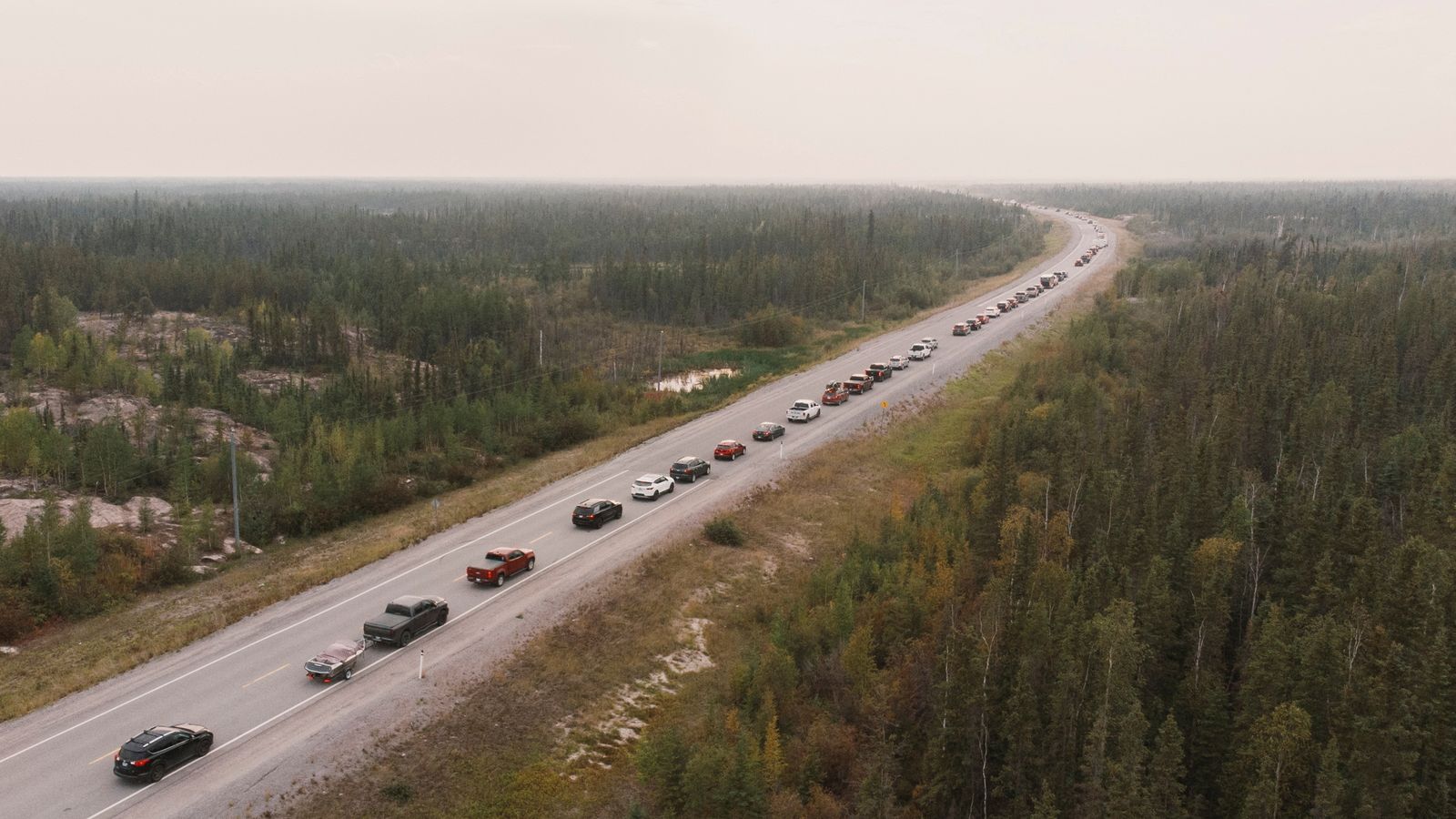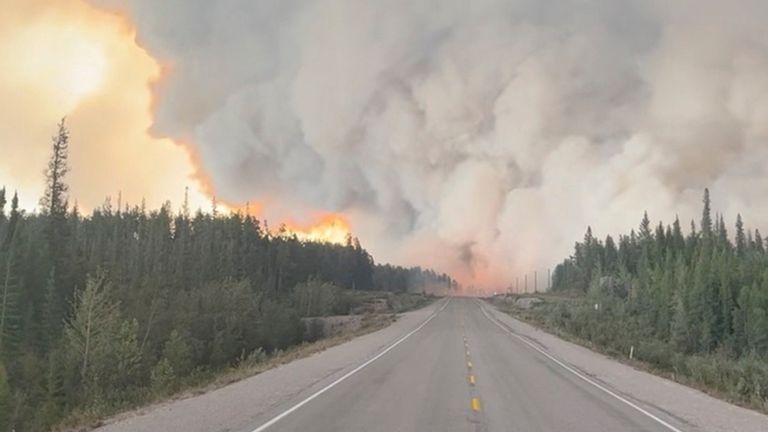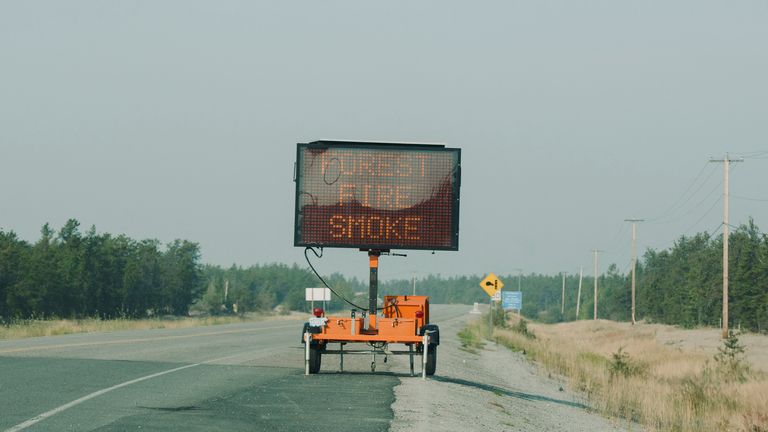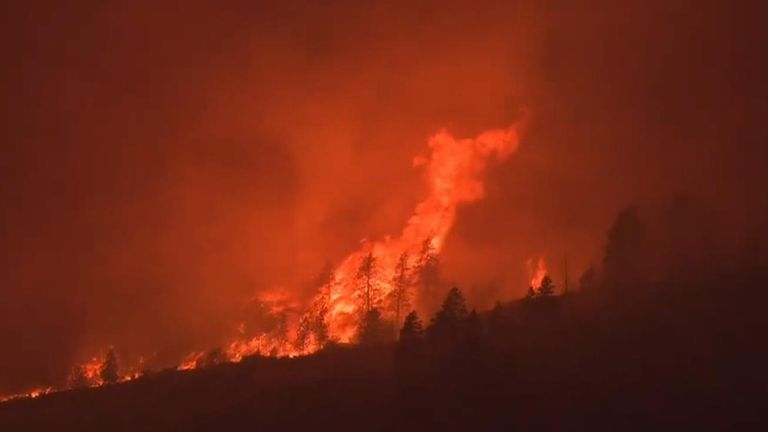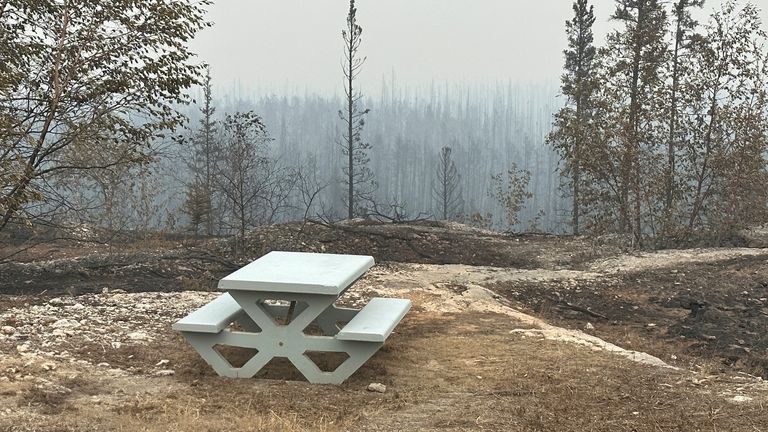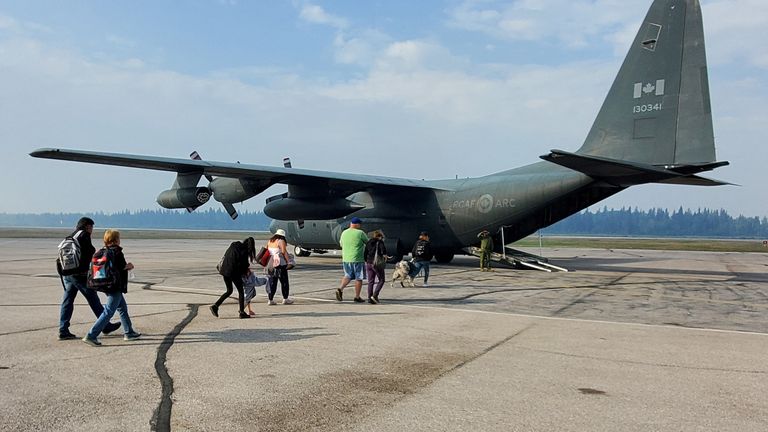Thousands of people are being urged to leave a major city in Canada’s Northwest Territories as a huge wildfire approaches.
Air evacuations for the most vulnerable are beginning on Thursday, and officials say there is a “safe window” for everyone else to leave Yellowknife by road.
The capital has a population of 20,000 people – and without rain, forecasts suggest the wildfire could reach the city’s outskirts by the weekend.
Canada is enduring a record number of wildfires, with over 1,000 active blazes burning across more than 8,000 miles of the country.
As of late last night, one of those fires is burning within 11 miles (17km) of Yellowknife. Authorities have warned that today it’s likely to reach Highway 3, the only main road connecting the city to the rest of Canada.
Residents have been given until noon on Friday to leave.
The Territories have declared a state of emergency and the Canadian military has been mobilised to help tackle the blazes.
“I want to be clear that the city is not in immediate danger and there’s a safe window for residents to leave the city by road and by air,” environment minister Shane Thompson said.
“Without rain, it is possible it will reach the city outskirts by this weekend.”
More than 200 wildfires have already burned a widespread area of the Northwest Territories, forcing nearly 6,800 people to flee their homes.
Premier Caroline Cochrane urged people to remain calm and warned that highways could close suddenly because of increased fire risk.
“I’ve never seen so many vehicles leaving town,” she said.
“There’s all kinds of rumours out there, but be ready and evacuate if necessary. Be calm. Do not panic.”
Another fire is threatening the community of Hay River. Teams are working to evacuate 3,000 people by bus and plane as the blaze approaches.
Western Canada is suffering a heat wave that saw 19 daily heat records broken on Tuesday and is fuelling hundreds of out-of-control wildfires.
Blazes have engulfed nearly all 13 of the country’s provinces and territories this year, forcing home evacuations, disrupting oil and gas production, and drawing in federal as well as international firefighting resources.
